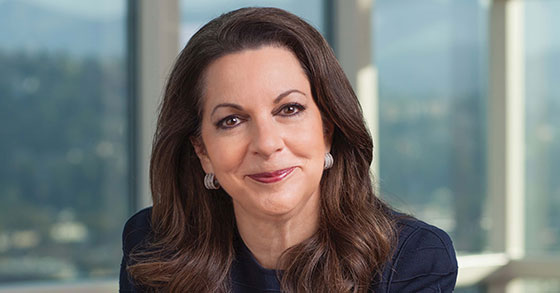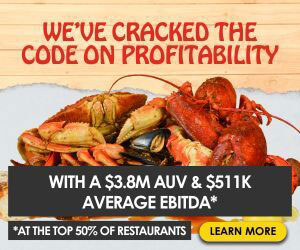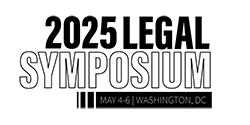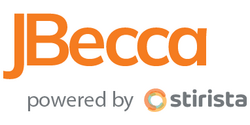CEO Profile: Julia Stewart, DineEquity, Part 2

This is Part 2 of our interview with Julia Stewart, Chair and CEO of DineEquity, the parent of Applebee's and IHOP. DineEquity operates 3,653 units (2,009 Applebee's and 1,644 IHOPs) and reported system-wide revenue of $7.3 billion (as of September 30, 2014). If you missed Part 1, click here.
How did you benefit from networking?
As I mentioned, I have opportunities throughout the year to engage in discussion with some of the best business minds around, so while I wouldn't specifically say that's "networking," it certainly is a positive in my business life. Having been associated with a number of great brands before joining Applebee's, then IHOP, and ultimately to the formation of Dine, I've been around some of the industry's best and brightest, which is always a good thing.
What role, if any, did mentors play in your career? How have they helped you?
I have been fortunate to have some wonderful mentors, both male and female. One of my main mentors in this industry was a man named Bob Leonard who started in the restaurant industry when he was 14 and spent his career at both IHOP corporate and as a franchisee, so he knew this industry backwards and forwards. Bob was a generous, kind man both in his personal life and professional life and always willing to offer his perspective and share his experience. He was very encouraging and supportive and, equally important, frank and honest with me and everyone around him. I learned a tremendous amount from him about the business and how to treat people, and I've tried to pay that forward. Bob also made time to give back to his community and support charitable organizations, and I've tried to emulate that as well. I miss him very much.
Are you now mentoring others?
While not a formal mentor, I spend time with virtually every member of our leadership team on a monthly basis. What's important is that our discussions aren't just about running the business, they are about where we are taking the business - together - and how I can help them grow and develop to lead their teams and see them develop. I believe developing leaders is one of the most important things I do. In addition to the internal folks I'm able to help develop, I also have the opportunity, from time to time, to work with leaders from the non-profit organizations and for-profit companies where I am a board member, as well as women and men in the industry I have met through the Women's Foodservice Forum.
What communication skills helped you reach the top?
Listening is probably the most important communication skill I possess, and one that I emphasize with my team. My style is inclusive, and you can't be inclusive without listening. We have bright people leading our company, and the best franchisees in the business. All of them have important, valuable things to say, so listening is key. With that said, it is equally important that I have the ability to clearly state a vision, direction, and strategy, that the audience - be they our Dine team, franchisees, shareholders, vendor partners, or the media - quickly understands, both the message and the reasoning.
What other skills were important?
All of them! Seriously, the role of the CEO in today's business world is so diverse and so quick to evolve that it is hard to define a specific skill set. I've mentioned having a core set of values that drive and guide my decisions: listening, building a great team, and being inclusive. All of those are important, but the most important to me is to learn every day, whether it be a new skill, more about your people, or how to thrive in a world driven by social media.
Did you encounter stereotypes/sexism, and how did you overcome that?
While there isn't anything specific I'd point to, there was a certain amount of stereotyping in my career, and I'm sensitive to that. But while I faced that, and I'm sure others have as well, the principle that guides me is that, as CEO, my success depends on having the most capable person in every position. And with that as your standard, you will automatically have diversity, which counters any stereotyping by resulting in success.
Do you think women bring a different approach to leadership? How?
I don't think so. Leadership is blind to race, age, sex, and religion. If you are capable and you help your people develop, you will not only be seen as a leader, you really will be a leader.
What are the biggest mistakes you see female leaders make?
Leaders make mistakes, be they male or female. What I would say to a female leader looking for advice is to believe in yourself and your abilities (while continuing to add to and improve them). Don't let a fear of being perceived as pushy or aggressive stop you from speaking your mind and giving your opinion (provided it's well thought-out). Conversely, don't let the fear of being perceived as passive keep you from listening, really listening.
Can you have a family and a career at the top?
Absolutely, and I do, but it doesn't come without having a great partner at home (which I have in my husband) and discipline. Certainly I am fortunate to have the means to have help, and there are many times when I'm getting on a plane that I'd much rather be at home, but it's all about "harmony," focus, and sticking to a schedule - along with having that great family support.
What does it take for a woman to become a CEO in franchising today?
All the things I've said here, and more. You have to have passion for whatever you are going to do, in franchising or any other form of business. You have to listen, you need to adhere to your values, and you always need to learn.
What's at stake if women continue to be underrepresented in the C-suite? If you see this as a problem, please explain.
There are great leaders who are already becoming the next generation of C-suite executives. Lots of them are female. As I said earlier, if companies focus on having the most capable person in the right position, it is inevitable that females will be fairly represented. With that said, I think it is incumbent on all leaders, CEOs and at other levels, to ensure that the recruitment process - internally and externally - is representative and inclusive of all groups.
Are you doing anything to help the next generation of women become franchise leaders?
I was one of the founders of the Women's Foodservice Forum, a group I think is doing more for the next generation of female leaders in our industry than any other. I'm extremely proud of my association with that group and the work they are doing.
What advice would you offer women seeking the C-suite?
Hopefully, everything I've said here clearly states what that advice would be: believe in yourself, always improve, listen, be guided by a set of values, be inclusive, and learn every day.
What would you like your legacy to be?
Certainly the creation of DineEquity and the iconic - and number one - status of both Applebee's and IHOP will stand as a big part of the "Julia Stewart Story." But what's truly important is that the team I lead continues to grow, thrive in business, is driven by values, and takes DineEquity to the next level.
Share this Feature
Recommended Reading:
| ADVERTISE | SPONSORED CONTENT |
FRANCHISE TOPICS
- Multi-Unit Franchising
- Get Started in Franchising
- Franchise Growth
- Franchise Operations
- Open New Units
- Franchise Leadership
- Franchise Marketing
- Technology
- Franchise Law
- Franchise Awards
- Franchise Rankings
- Franchise Trends
- Franchise Development
- Featured Franchise Stories
| ADVERTISE | SPONSORED CONTENT |








 The franchise listed above are not related to or endorsed by Franchise Update or Franchise Update Media Group. We are not engaged in, supporting, or endorsing any specific franchise, business opportunity, company or individual. No statement in this site is to be construed as a recommendation. We encourage prospective franchise buyers to perform extensive due diligence when considering a franchise opportunity.
The franchise listed above are not related to or endorsed by Franchise Update or Franchise Update Media Group. We are not engaged in, supporting, or endorsing any specific franchise, business opportunity, company or individual. No statement in this site is to be construed as a recommendation. We encourage prospective franchise buyers to perform extensive due diligence when considering a franchise opportunity.